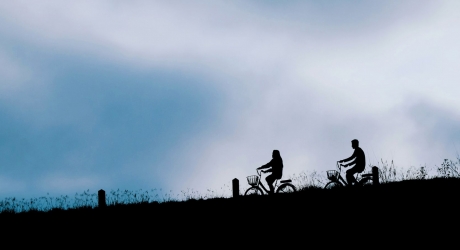On December 17, 1903, the brothers Orville and Wilbur Wright became the first men to successfully pilot a heavier-than-air craft under both control and power.
Orville and Wilbur Wright were bicycle makers from Ohio. When they set out to construct a flying machine, they started from the most primitive constructions, and persevered until they had developed a craft fit to usher in a new age for man. While engaged in their preparation, they maintained the utmost secrecy. In order to ensure privacy, they bought a 600-acre farm in Kitty Hawk, a remote spot in the North Carolina coast. They made no attempts to publicize their project. When the first flight was made, Harry P. Moore, marine reporter for the Norfolk Virginian Pilot, heard the news 55 minutes later from a guardsman at Kitty Hawk, Dan Simpson. He gave Moore the news that Orville Wright had been aloft for 12 seconds and had covered 120 feet.
This sensational news was received with skepticism by most national newspapers. When Moore sent out telegraph queries to newspapers all over the country, only five papers printed it. How could two unknown brothers, they thought, have achieved such a wondrous feat?
At the same time, much-publicized efforts to make the first flight in the history of man were continuing up the coast at Widewater, Virginia. The site was about thirty miles south of Washington D.C., the capital of America, and the eyes of the nation were on the project. The machine prepared there was the product of Samuel P. Langley, who was then America's most distinguished aeronautical scientist. Despite having the advantage of funds, publicity and expert know-how, attempts to make the first flight were unsuccessful. There were two failures, the last on December 10, 1903, before the Wright's epic feat.
The Wrights achieved by quiet endeavour what others could not achieve by much-publicized preparation. They kept their sights set firmly on the goal ahead of them, and ignored all other considerations. This is summed up in the response of Orville Wright to a question put to him after World War II, when terrible destruction had been unleashed by the airplanes that had been developed from his basic model. Had Wright thought that their invention would be used for such dreadful purposes as was now the case? "That day at Kitty Hawk," he replied, "we thought only of getting off the ground."










